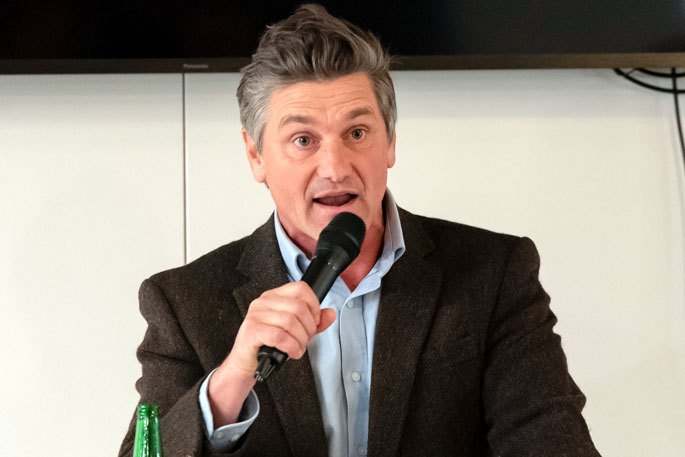The Rural Support Trust’s Time Out Tour is in its third year.
The tour visits rural communities around New Zealand, with TV presenter turned farmer Matt Chisholm as the speaker, sharing his own mental health story with rawness, honesty and emotion.
“Matt’s love for the country, coupled with a passion for helping others be proactive about their wellbeing, made him a great fit as the inaugural Ambassador for the Rural Support Trust,” says trust general manager Maria Shanks.
“By sharing his story and the tools and techniques that have helped him he helps rural communities normalise the conversation around mental wellbeing and build the connections and networks needed to look after ourselves and each other.”
After being involved with the documentaries Like a Man and Man Enough and writing his book Imposter, Matt was asked to speak at a Rural Support Trust fundraiser in New Plymouth.
“That was the first time I’d actually stood up in front of a crowd and spoken about my story and it wasn’t easy,” he says.
He received a standing ovation and was inundated by people wanting to tell him their own story.
“I realised that I’m fortunate to be in a position where people listen to me and I can relate to them. Since I have been farming, I have also had insight into what issues the rural communities face.”
To others, Matt had it all. A jet-setting life as a TV presenter and journalist covering all the big stories in the glitzy world of media and living the dream.
“That couldn’t have been further from the truth. I was tired, irritable, burnt out and depressed.”
He sought help and pulled himself back, including leaving the world of television behind and moving with his family to a South Island sheep and beef farm. He has gratefully immersed himself in rural life.
“On the tour I still find it difficult to be away from home and I miss family things like coaching my sons’ football teams. It’s really hard spending time on my own, but it also gives me time to think.”
Matt describes sleep as “the best drug I have ever taken”, and rates that along with exercise and social connection as the three most important things to find time for.
“Even if it’s hard, sometimes you’ve got to do what you don’t want to do to get out of that hole. If I can be the reason someone reaches out for help, then that’s really cool.”



0 comments
Leave a Comment
You must be logged in to make a comment.